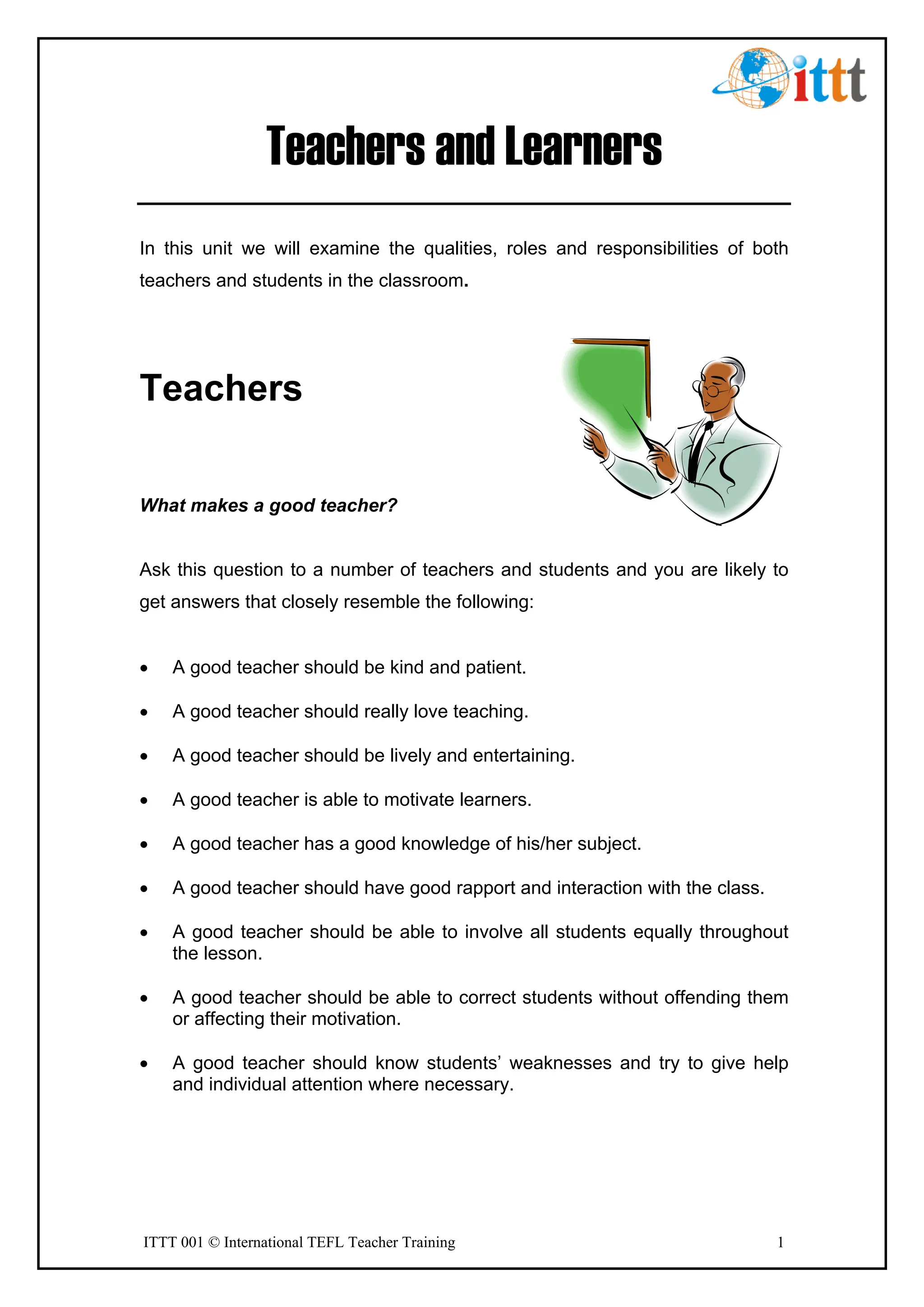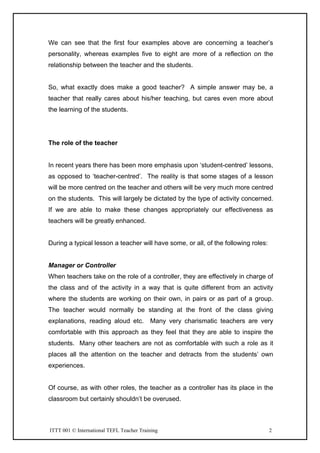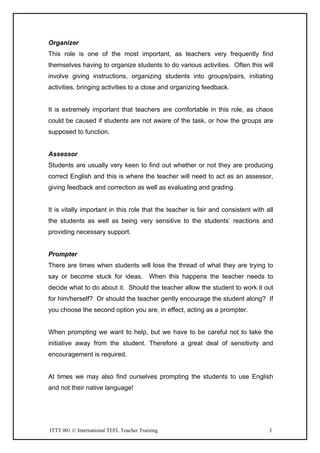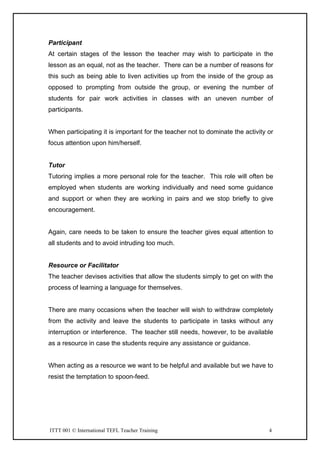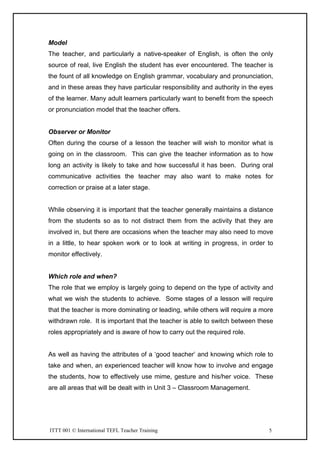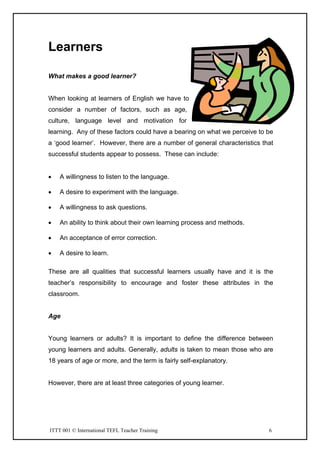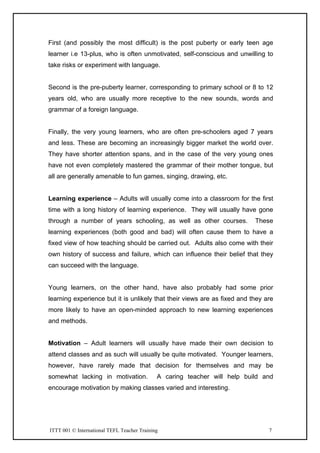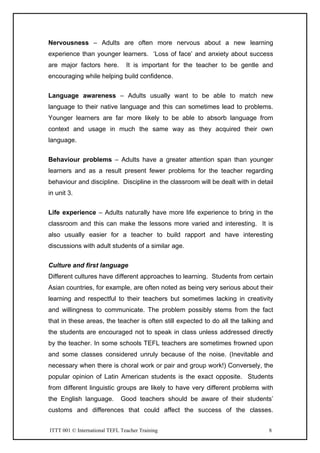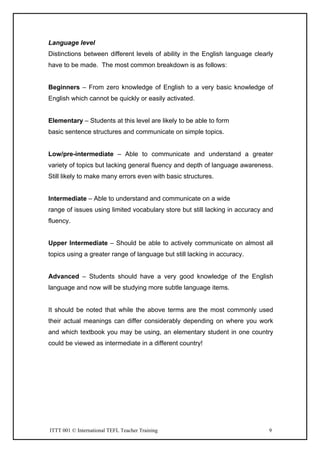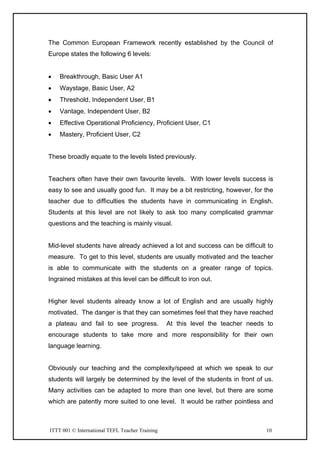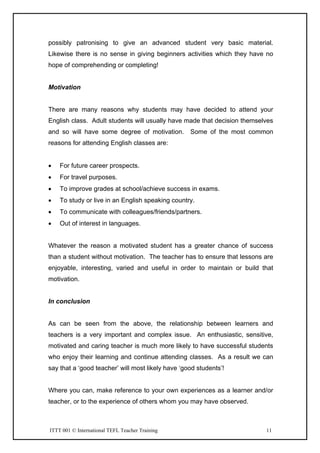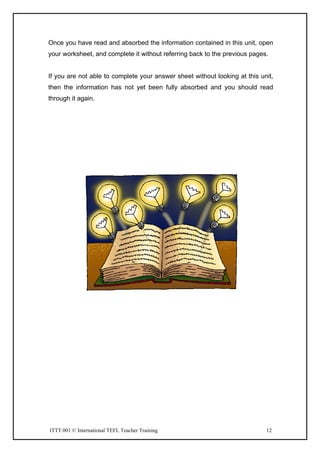This document discusses the roles and qualities of effective teachers and learners. It outlines that good teachers care deeply about teaching and student learning, have strong subject knowledge and rapport with students, and can switch between directing lessons and facilitating independent student work. The document also examines different roles teachers take on like manager, organizer, assessor, and participant. Additionally, it identifies qualities of successful learners like willingness to experiment, ask questions, and accept feedback. Finally, the document distinguishes between teaching young learners versus adults.
